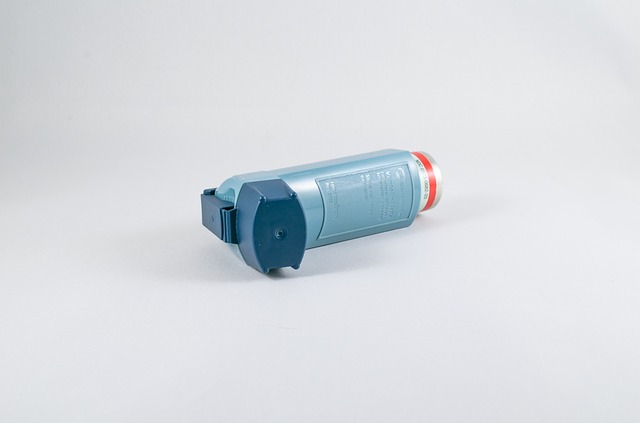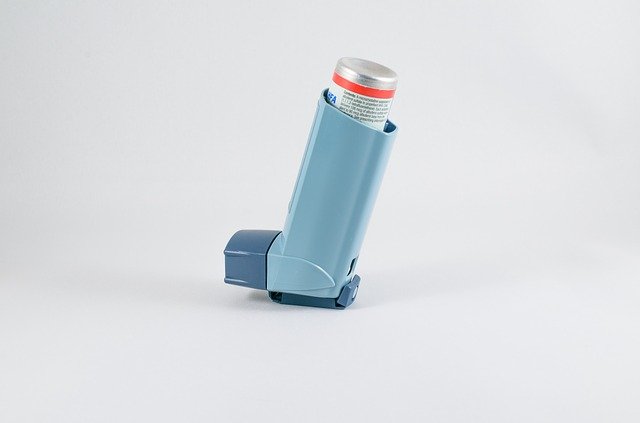
You should treat asthma as a serious condition that can impact your life negatively. To prevent your asthma from becoming dangerous, you must learn how to properly care for your condition. This article gives you insightful tips on ways to control your symptoms of asthma.
Do you know which type of asthma you suffer from? Understanding the specifics of your asthma will help you to avoid attack triggers in your day-to-day life. For example, if your asthma is induced by exercise, it might be wise to always have an inhaler in your gym bag. You will be able to prevent asthma attacks if you can recognize symptoms.
Do you know what type of asthma you have? Before you can develop a self-care plan for your asthma symptoms, you need to know the specific cause of your symptoms. If your asthma is triggered by exercise, throw an inhaler into your gym bag. Knowing the patterns related to your symptoms could aid you in avoiding crises.
If you suffer from asthma, it is vital that you avoid smoking; if you do, you should quit. Smoking isn’t healthy for anyone, but if you are afflicted with asthma, preventing oxygen from getting to your lungs is just begging for an attack.
If you are suffering from a moderate or mild attack, do your best to force as much air out of the lungs as possible. Exhale in a hard and fast manner. Exhale with maximum force! Follow this by breathing in three times quickly, and a fourth time deeply to ensure your lungs are filled to capacity, then exhale again as forcefully as possible. This will make your breathing rhythmic and help you pay more attention to it. It also helps to push air out from your lungs so new air can come back in. You might cough hard or create mucus, but its just a sign your breathing is getting back to normal.
Asthma is a chronic disease that requires ongoing, consistent management and care. Make sure you are taking the right medications to control your everyday asthma symptoms, and have a quick relief medication on hand if you have an attack. Have a discussion with your doctor or allergist to determine what the best plan for you might be.
If the room that you’re in is dusty, do not turn on a fan. Otherwise, the dust will fly into the air and could give you an attack. Encourage air to flow throughout the room by just opening a nearby window or door.
Utilize the inhaler correctly. An inhaler is most effective if used in a relaxed location and according to the maker’s instructions. The only way the inhaler will work is if your lungs get the proper amount of medication. While inhaling air, spray the proper amount of inhalant into your mouth. Hold your breath at least ten seconds, so that the medicated mist can fill your lungs.
Know how to use your inhaler correctly. Try to locate a calming location, and be certain to adhere to any directions given by the inhaler’s maker. You can inhale all you want, but it’s useless if the medication doesn’t make it to your lungs. Inhale air while spraying the necessary amount of medication into your mouth. You should hold your breath 10 seconds so the medicated mist is able to fill up your lungs.
Think about buying a dehumidifier if your asthma symptoms are bad. A dehumidifier will reduce attacks by taking extra humidity and, by extension, dust mites and other debris out of your air. A dehumidifier works to dry the air by removing moisture.
Respiratory Infection
Using over four kinds of cleaning products in the home can trigger asthma attacks. Use organic products as often as possible, as these contain fewer harsh chemicals.
Asthmatics should have a flu shot every year to prevent contracting a serious respiratory infection. You do not want to have a respiratory infection if you have asthma. The easiest way to start is by performing routine hand-washing, limiting your touching of surfaces while in public places, and getting vaccinations recommended by your doctor.
If you have asthma, try to avoid smokers, even if you do not smoke. As soon as you inhale any smoke from tobacco, your lungs become sensitive, which increases your risk of an attack. Just avoid any type of smoke, especially in small areas, and keep your lungs healthy to be safe.
Make sure you are taking plenty of Vitamins E and C if you suffer from asthma. These vitamins aid in improving the function of the lungs and controlling the symptoms of asthma. Either find a good vitamin supplement to take, or change your diet to include more foods rich in Vitamins E and C. These vitamins will also provide a boost to your immune system. This will prevent respiratory illnesses that can trigger your asthma attacks.
Be certain you are aware of all your asthma attack triggers so you know both how to steer clear of them and also be ready to take care of your symptoms. Common triggers among asthma sufferers are smoke, pollen, or pet dander. If at all possible, strive to avoid substances and locations that trigger your asthma symptoms or attacks.
Using more than four different types of cleaning products in your home has been shown to increase the risk of an asthma attack. To limit the chemicals in the air, look for organic cleaning alternatives.

During cold, winter months, asthma sufferers should wear a shawl, muffler, or scarf that will cover both their nose and mouth. This warms the air before you bring it into your lungs. Breathing in cold air tends to start asthma attacks, especially with younger children that have severe or moderate asthma.
Lower the chances of asthma attacks by keeping a spotless home, particularly in the areas where you sleep. Food should be eaten only in the kitchen or dining room, and cigarettes are best relegated to outdoor smoking areas. When cleaning your home, try not to use products that contain harsh chemicals, such as bleach. You should also allow fresh air to thoroughly circulate throughout your home after you’re done cleaning it.
Know the right way to use any asthma medication you are taking, in particular your rescue medication. A typical asthma treatment plan is daily medication backed up with an emergency inhaler. Asthma is a serious, chronic health condition, and it’s vital that you take medicine to manage the disease properly and use the rescue medications as directed.
Make sure to examine what it is that causes your asthma attacks in order to best avoid having to deal with them. A lot of asthma sufferers have some triggers in common, like pollen, smoke and pet dander. When possible, stay away from triggers of asthma symptoms in an effort to prevent a severe attack.
A lot of times asthma will develop over time, and has symptoms that aren’t always obvious. There are many cases where people have died from their first asthma attack, without even being aware that they were at risk. Therefore, if you have trouble breathing or a constant cough, you may want to seek a medical professional to determine if you have asthma. Your physician can also determine whether you need medication for either asthma prevention or asthma treatment.
Asthma Triggers
It’s a very good habit to use your asthma inhaler as a daily preventative, although the drug residue can cause issues for your gums and teeth. Immediately brush your teeth followed by a quick gargle after using your inhaler. This is a great way to prevent any kind of complications in your mouth.
Many of the biggest triggers for asthma can, and do, exist in your home. Typical asthma triggers in the home are dust and mold spores. Having your house inspected yearly is a good way to reduce the presence of these asthma triggers. In addition, regularly cleaning the home can stop these things from building up.
Avoid aggravating your asthma condition while sleeping by covering your mattress and pillows with plastic before putting clean linens on. Clean your linen and pillow case every week to prevent asthma attacks. Sleeping with fresh bed linens will ensure you can breathe easy when you sleep.
Instead of sweeping your floors, clean them with a damp mop. Sweeping can stir up some asthmatic triggers that will exacerbate your symptoms. When dusting, use a damp cloth, as feather dusters just move dust around.
If you have allergies and asthma, you need to avoid using a humidifier or a vaporizer unless it has been thoroughly cleaned. If it is not clean you end up getting bacteria growth in the damp interior of the machine, and that ends up flooding the air you want to humidify with allergens.
Contact with pets and other animals should be minimized for the asthma sufferer. An allergy to an animal will worsen asthma symptoms, and an animal can carry enough dust or pollen to trigger an attack.
If you are having an asthma attack, it is crucial that you remain calm. Use your rescue inhaler, rest for a half to one minute, then use the inhaler again. If the attack gets worse, then seek help immediately. Go to the hospital immediately or call 911. Inhaling and exhaling into a paper bag can slow your breathing while en route.
Avoid smoking. Most people know how dangerous smoking is, but for someone afflicted with asthma, the dangers are ten times more serious. Asthmatic lungs are extremely sensitive, and should not be exposed to smoke. Someone who has asthma should not only avoid smoking, but should also try to avoid being exposed to people smoking in their vicinity.
In order to ward off asthma attacks, it is crucial that you pinpoint your triggers. Consider keeping a journal to help you identify possible asthma triggers and discuss the results with your doctor. Many people have success controlling their asthma by eliminating known asthma triggers.
If you think that your asthma is becoming worse, go to your doctor. To manage asthma and get more out of life, you should use these tips.
Try using caffeine as an emergency backup if your asthma medications are unavailable during an attack. The caffeine found in chocolate, coffee, soda, or black tea will aid in lessening the severity of your attack. It works because it opens your airways by constricting your blood vessels.
